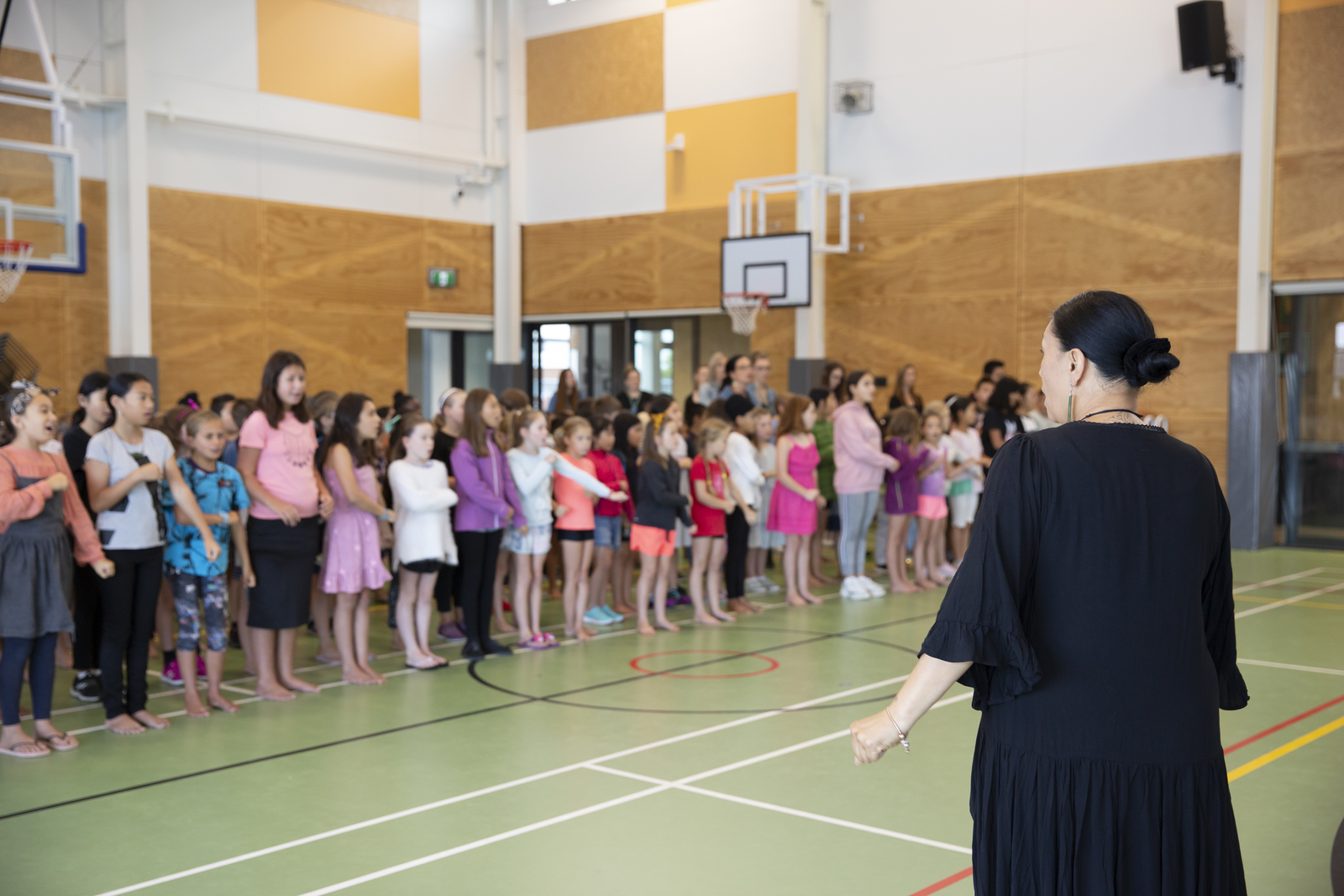Pōwhiri at Te Ao Mārama
The pōwhiri (or pōhiri) is a traditional Māori welcoming ceremony, a process where the host people welcome visitors, usually on a marae but in this instance to our school.


The tangata whenua are the local people of this land (including our current students and staff of our school). Our Principal, staff and students will officially welcome our manuwhiri (new whānau or families and new staff) onto the school grounds.
Our manuwhiri will assemble as a group outside the office area where they will be briefed by our staff. They will be called on with a traditional karanga (a chant that clears the way for a safe passage) only done by women.

As the manuwhiri move towards the tangata whenua, the women and children are at the front and men at the back. This is an act of protection and coming in peace. Men will sit in the front rows of seats, with the Kai Korero (designated speaker/s - only men). The women and children sit in the seats behind the men. The tangata whenua speak first and as with every speech in the pōwhiri process, it is followed by a waiata tautoko (supporting song).



A whai korero (speech) either welcomes or tells of the purpose of the visit and pōwhiri. Each speaker will connect to the local land by referring to the local iwi and the Māori king. They often will include their own pepeha (connections and family links) as part of their whai korero.
The waiata tautoko is often a song that links to the local iwi or a whakatauki (proverb or significant saying) that pertains to the school or visit. It may also link to a key message in the whai korero.
A male (whānau member or current member of staff with links to the guests) will reply on behalf of the manuwhiri also with a waiata to support their speech.
The last speaker will be our Principal, Tony Grey, to finish off the speech proceedings accompanied by another waiata.
All of our new whānau will then move over to partake in the hongi and harirū process (the pressing of noses or shaking of hands).


Once this is complete our Principal will speak again this time in English addressing the tamariki and translating some of the key messages in the pōwhiri.
Our new whānau are invited to have kai (food) to complete the pōwhiri process. The process of sharing in kai moves the Pōwhiri from a state of tapu (restricted and sacred) to noa (removed from restriction and neutral). Our manuwhiri are now considered tangata whenua (local people).
After our kai our new students will move off to their new learning communities.